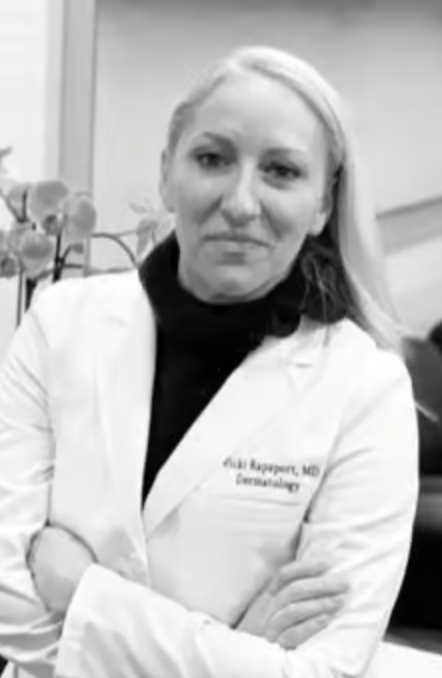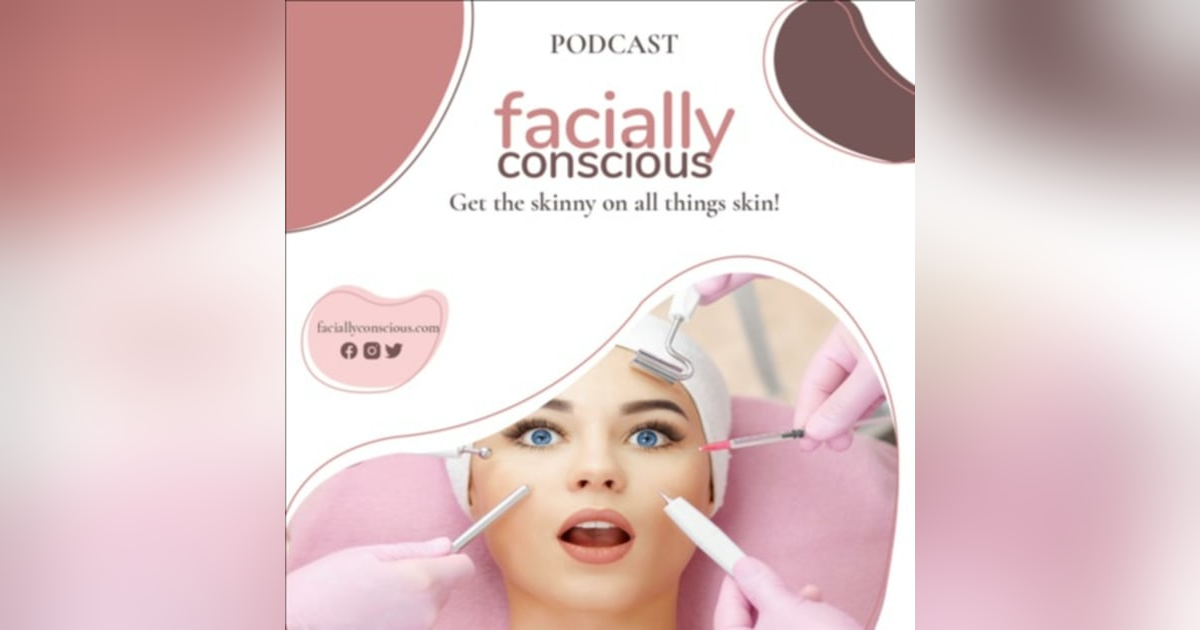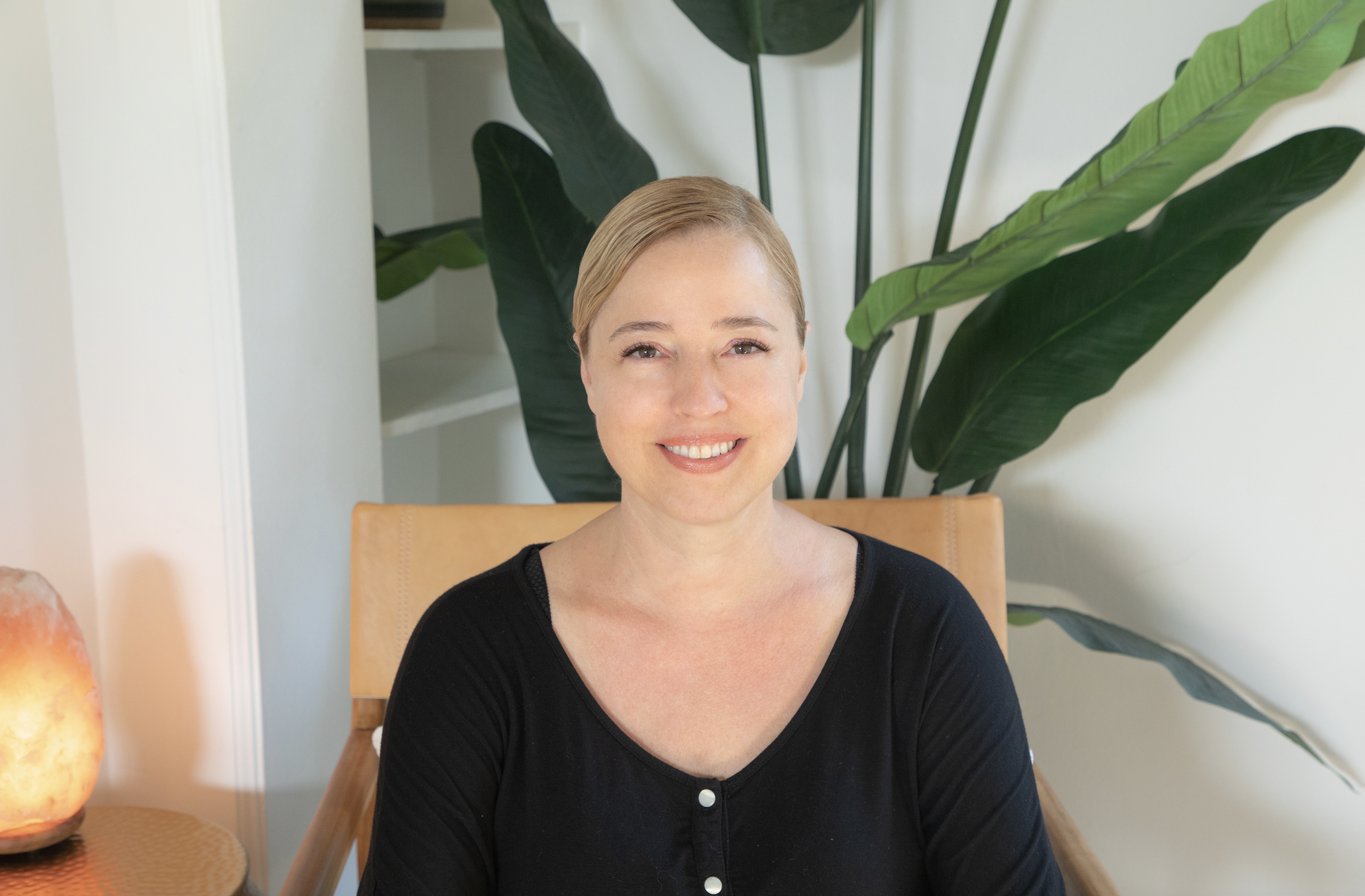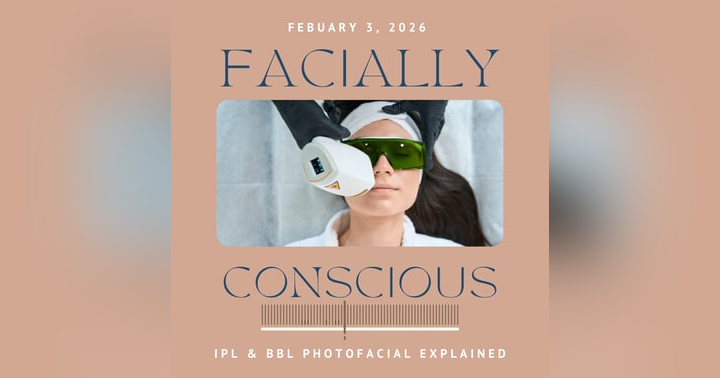Meet the Brilliant Mind Behind the Microphone: Dr. Vicki Rapaport's Journey from Art History to Dermatology Excellence

When listeners tune into the Facially Conscious Podcast, they aren't just getting skincare advice—they're gaining insights from one of dermatology's most passionate professionals. In a recent episode titled "Unveiling the Brilliant Co-Host: Dr. Vicki Rapaport - Let's Get Acquainted!", co-hosts Trina Renea, Rebecca Gadberry, and Julie Falls pulled back the curtain on their resident dermatologist, sharing the fascinating journey that led Dr. Rapaport to become a second-generation dermatologist with practices in Beverly Hills and Culver City. Rapaport Dermatology.
The Unexpected Academic Journey: Where Art Meets Science
Dr. Rapaport's educational journey showcases a unique blend of creativity and scientific precision that many skincare professionals can relate to. At UCLA, she earned a double major in pre-med and art history—a combination that may seem unconventional but reflects her holistic approach to patient care. "I guess it would be the Right Brain - Left Brain Balance that I have," Dr. Rapaport explained during the podcast. "I knew that I didn't want to be so solely scientific."
This balance between analytical thinking and aesthetic appreciation influences her approach to dermatology, where the science of skin health combines with the art of cosmetic enhancement. Her background in art history encourages an appreciation for beauty and visual analysis that directly informs her work with patients seeking both medical treatment and cosmetic improvements.
The practical challenges of her double major—hurrying quickly between UCLA's North Campus (arts) and South Campus (sciences) with only ten minutes between classes—illustrate the dedication that would later benefit her in medical practice. Even her admission of occasionally napping during dark art history lectures reveals the human side of someone who would go on to help thousands of patients with their skin concerns.
From a Passion for Biology to a Career in Dermatology
Dr. Rapaport's journey to dermatology wasn't set from the start, even though she is the daughter of famous dermatologist Dr. Marvin Rapaport. Her passion for biology began in high school, where she naturally gravitated toward the subject and even tutored her friends. "I was a biology-obsessed high school student. Loved bio, I couldn't just get enough bio," she recalled.
The pivotal moment came during medical school at Jefferson Medical School (now Sidney Kimmel Medical College) when she encountered the dermatology section of histology. "I'm telling you, it was again, like the bio experience in high school, it just came so easily," she shared. This natural affinity for dermatological science, combined with her aesthetic sensibilities, laid the perfect foundation for her career.
The Evolution of Dermatology: Twenty Years of Transformation
Having practiced for more than twenty years, Dr. Rapaport has observed significant changes in dermatology that directly influence how estheticians and other skincare professionals approach their work. She notes two major revolutionary developments: the rise of cosmetic dermatology and the emergence of biologic medications.
When Dr. Rapaport was in residency, Botox had just been approved in 2002, and cosmetic procedures weren't part of standard dermatological education. "We didn't really learn cosmetics at all," she noted. Today, dermatology residents receive thorough training in injectables, lasers, and other cosmetic procedures, showing how much the field has grown.
Even more important for patients with severe skin conditions is the development of biologic medications. These targeted therapies represent a significant advance over the broad-spectrum treatments of the past. As Dr. Rapaport explained, "Think of psoriasis as like a multi-step process to create a psoriasis plaque. It involves targeting one of the immunomodulators that essentially causes the plaque, compared to a steroid, which will eliminate the entire cascade of events."
This precision medicine approach means that patients with severe eczema, psoriasis, vitiligo, and alopecia now have treatment options that were unimaginable two decades ago. For estheticians working with clients who have these conditions, understanding these advances helps in providing appropriate referrals and complementary care.
Navigating Modern Practice Challenges
Dr. Rapaport's choice to keep her independent practice instead of selling to large corporate entities highlights broader challenges that healthcare providers face today. Her pride in "being able to make my own schedule" and staying "standing in this atmosphere where a lot of practices are selling their practices to these big conglomerates" resonates with many skincare professionals who value independence in their work.
This independence allows her to uphold the personalized approach that defines quality dermatological care. It also helps her mentor aspiring professionals, from pre-med students to estheticians, offering real-world insights about the field.
The Expansion: Bringing Expertise Closer to Home
Dr. Rapaport's recent opening of a satellite practice in Culver City shows strategic planning for better patient service. Located just blocks from her home, this expansion lets her offer more accessible care while keeping a healthy work-life balance. For skincare professionals thinking about expanding their practice, her approach provides a thoughtful model of growth that focuses on both patient access and practitioner sustainability.
Advice for Future Skincare Professionals
Dr. Rapaport's advice to aspiring dermatologists applies broadly to anyone entering the skincare field: "You just work really hard and stay honest." She emphasizes the importance of integrity, communication, and finding the right balance between challenge and skill level in your chosen specialty.
Her observation about finding "flow" in dermatology—where challenges align with skills—provides valuable guidance for estheticians and other skincare professionals searching for their niche. Whether focusing on acne treatments, anti-aging routines, or sensitive skin care, discovering that ideal balance where expertise and passion meet leads to both professional fulfillment and the best patient results.
The Future of Collaborative Skincare
Dr. Rapaport's involvement in the Facially Conscious Podcast demonstrates a collaborative approach that benefits everyone in the skincare community. By sharing knowledge among dermatologists, estheticians, cosmetic chemists, and informed consumers, the podcast helps create a more knowledgeable community capable of making smarter skincare choices.
This collaborative spirit extends into her practice, where she works closely with estheticians and values their contributions to patient care. For skincare professionals, this model highlights the importance of building relationships across disciplines and pursuing continuing education throughout one's career.
As the skincare industry continues to advance with new technologies, ingredients, and treatment options, Dr. Rapaport's transition from art history student to dermatology specialist reminds us that the best practitioners combine scientific precision with aesthetic sensibility. Her story inspires all skincare professionals to view their unique backgrounds and perspectives as strengths that improve their ability to serve clients effectively.
The Facially Conscious Podcast keeps delivering valuable insights, helping bridge the gap between professional expertise and consumer understanding in the ever-changing world of skincare.









